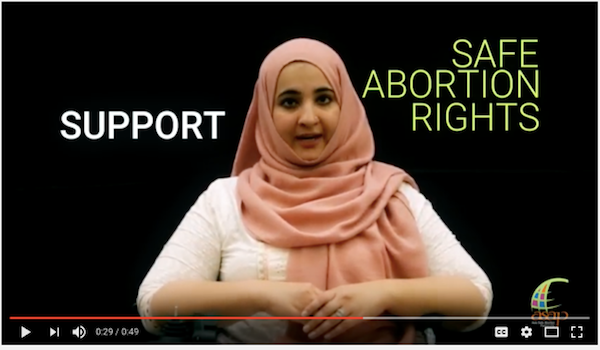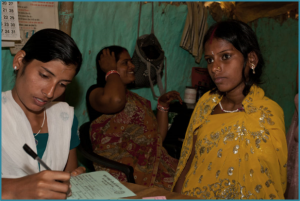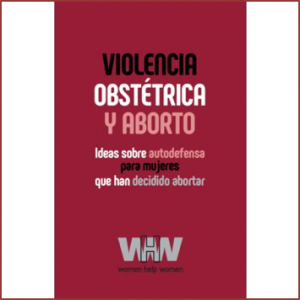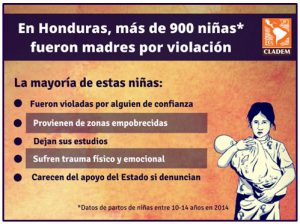
ASIA SAFE ABORTION PARTNERSHIP
Commemorating May 28th International Day of Action for Women’s Health, ASAP along with its youth champions, launched a month long photo campaign #EveryWomanEveryCountry.
The campaign aimed at highlighting obstacles and stigma women face in accessing safe abortion services and reminding the policy makers that women everywhere have the right to SRHR which includes access to safe abortion.
Please find the pictures here: https://www.facebook.com/media/set/?set=a.1083806891753124.1073741854.147812548685901&type=1&l=85b820c643
We also released a short advocacy film marking this day, that you can watch here: https://youtu.be/b2fS5dRgD8I
ARROW MALAYSIA

The Right to Safe Abortion is a Human Right: ARROW’s Statement for May 28, International Day of Action for Women’s Health, 28 May 2017
On this International Day for Action for Women’s Health, the Asian-Pacific Resource and Research Centre for Women (ARROW) – an ECOSOC-accredited NGO, based in Malaysia, working since 1993 to advance women’s health and rights, empowering women through information and knowledge by monitoring international commitments, advocacy and mobilisation – call for all governments to acknowledge women’s bodily integrity and their SRHR and provide access to safe abortion.
We further call on governments to;
- Recognise that access to safe abortion services is a human right for all women and girls.
- Remove restrictions and laws that criminalise access to safe abortion services, including religious justifications that deny these services to women. Eliminate all punitive measures for women and girls seeking abortion, and health care providers performing abortions.
- Regulate service provision to ensure that women, including young women, have safe access to abortion services and post-abortion care should they choose to have an abortion.
- Provide adequate care facilities, counselling services and referral, and change attitudes and perceptions that result in stigmatisation within health institutions, including when women seek post-abortion care. In addition, ensure respect for women, informed decision-making, autonomy, confidentiality and privacy in the provision of safe abortion services.
- Ensure context-specific and rights-based continuum of quality care (CQC) for women’s sexual and reproductive health which spans across a woman’s life-cycle – before and during pregnancy to post-partum/post-abortion and menopause – and across various locations, for example, the home, community and health facilities.
- Ensure that women, including young women, have access to adequate information and services to contraception at no-cost or at minimal cost. Decision making with regards to contraceptive use should also be rights-based.
- Ensure that safe technologies, such as medical abortion and manual vacuum aspiration, are available in all facilities, including public health facilities.
SOURCE: http://arrow.org.my/right-safe-abortion/, 28 May 2017
WOMEN HELP WOMEN
La violencia obstétrica no siempre se reconoce como algo relacionado con la práctica del aborto, pero sabemos que hay situaciones en que las mujeres  experimentan violencia obstétrica relacionados con el tratamiento pre- y pos-aborto. Este documento está basado en experiencias de mujeres y activistas en América Latina y el mundo. Como parte del 28 de Mayo – Día Internacional de Acción para la Salud de las Mujeres, compartimos este documento con herramientas para que las mujeres que acuden a un servicio médico en algún momento del proceso de aborto o para un control después del aborto tengan más posibilidad de evitar esta violencia.
experimentan violencia obstétrica relacionados con el tratamiento pre- y pos-aborto. Este documento está basado en experiencias de mujeres y activistas en América Latina y el mundo. Como parte del 28 de Mayo – Día Internacional de Acción para la Salud de las Mujeres, compartimos este documento con herramientas para que las mujeres que acuden a un servicio médico en algún momento del proceso de aborto o para un control después del aborto tengan más posibilidad de evitar esta violencia.
As part of the International Day of Action for Women´s Health, Women Help Women has launched a new resource in Spanish, sharing tools and ideas about how women can protect themselves from obstetric violence if for any reason they see a health professional during the process of abortion, or for a post-abortion exam.
Translations will come soon.
SOURCE: Violencia Obstétrica y Aborto: Ideas sobre autodefensa para mujeres que han decidido abortar. https://womenhelp.org/es/page/772/defiendete-de-la-violencia-obstetrica
SOMOS MUCHAS HONDURAS
In Honduras, in 2014 more than 900 girl children aged 10-14 years became mothers following sexual abuse. Most of them were abused by someone they trusted, they came from impoverished areas, they had to leave school, they suffered physical and emotional trauma, and they did not receive the support of the state if they reported the crime.

El #28Mayo, demandamos que el Estado de #Hondurasreconozca el fenómeno terrible del embarazo infantil forzado. #NiñasNoMadres CLADEM CLACAI IPPF Amnesty International PROMSEX
(On 28 May, we demand that the state of Honduras recognize the terrible phenomenon of forced pregnancy among children.)



